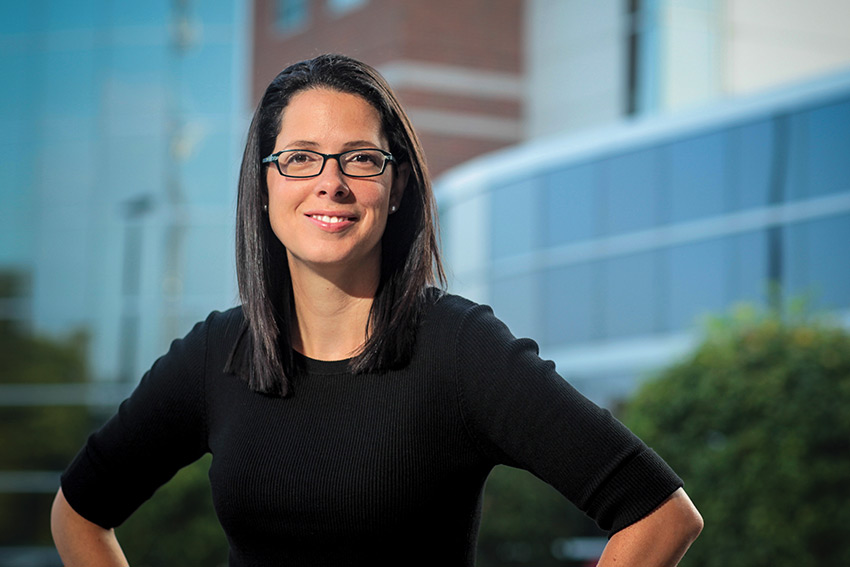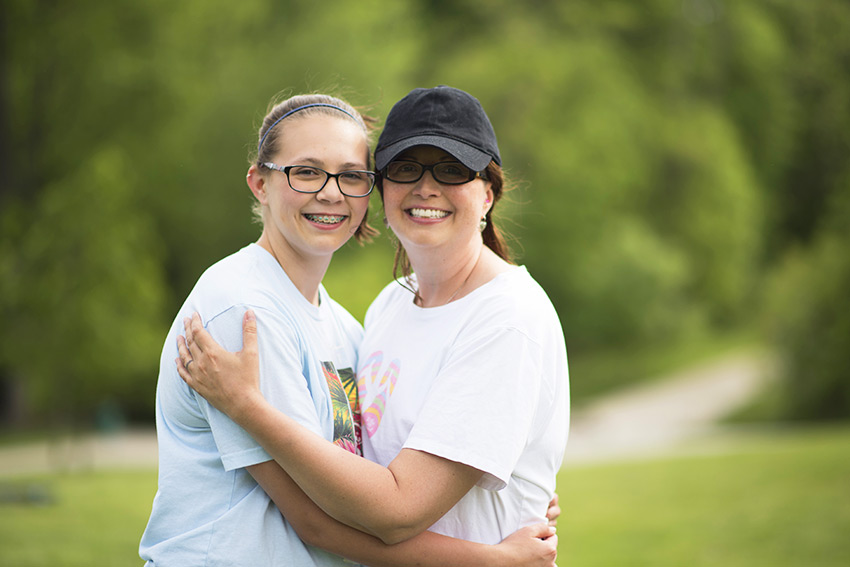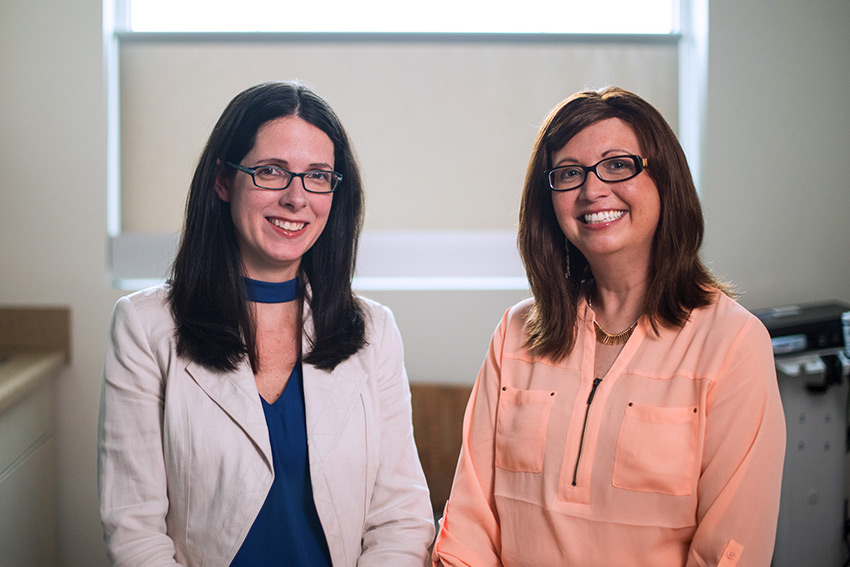"My philosophy of care is patient-centered cancer care, which means putting the patient at the center of the care, and building all of the resources around them to elevate them and enable them to fight the cancer."
Dr. Anne Mattingly wholeheartedly believes in putting her patients first. It's this type of unwavering commitment to and compassion for her patients, combined with experience and expertise in her field, that makes her shine as a breast surgical oncologist at the Hendricks Regional Health Breast Center.
Choosing her specialty

Dr. Mattingly's expertise stems from her experience at Indiana University's School of Medicine and a Breast Surgical Oncology Fellowship at the renowned H. Lee Moffitt Cancer Center in Tampa, Florida. Her love for the profession developed during her residency, where she had the opportunity to learn from different breast surgeons.
"I got to know some of the breast cancer patients, was able to see the level of care that was provided by the specialists, and I felt that there was a lot more humanity to the speciality than other aspects of surgery. I felt that this was something I could dedicate my career to and really enjoy."
One of the breast surgeons in her residency rotation was Dr. Monet Bowling, who quickly became a mentor and friend. Dr. Bowling and the Hendricks Regional Health executive team encouraged Dr. Mattingly to consider being a part of the Hendricks Regional Health Breast Center. In August 2016, Dr. Mattingly joined Dr. Bowling—alongside plastic and reconstructive surgeon Dr. Rachel Scott, and the rest of the incredible team at the Hendricks Regional Health Breast Center—to lead the charge for breast health in our community.
At the forefront of breast cancer innovation
With advanced diagnostic tools available, it's important to Dr. Mattingly to make sure women understand the significance of this technology. "3D mammography has been around for a number of years, and it's very important because it is much more accurate at diagnosis. It can detect breast cancer several months earlier than the 2D mammography," she says.
Ensuring patients understand their personal risk is important, too. "I think a lot of women don't understand their personal risk and maybe believe it's not going to happen to them. But if we know about their increased risk, then we have strategies to help reduce this risk with the hope to prevent them from ever getting breast cancer."
The high risk program at the Hendricks Regional Health Breast Center was developed for patients to be evaluated during their screening with risk modeling. Doing so can help determine if the patient is at increased risk for breast cancer, or at an increased risk of genetics associated with breast cancer. "If they are identified as high risk," Dr. Mattingly explains, "the patient is offered a same-day visit to discuss their personal family history, and to discuss their options in terms of risk management."
Along with the high risk program, the Hendricks Regional Health Breast Center provides a full continuum of care with their Survivorship Program to help patients live their best life after breast cancer.
Relating on a personal level
Growing up in Lafayette with six brothers and sisters, Dr. Mattingly easily relates to patients, their families and the dynamics of supporting each other through life's ups and downs. "The majority of my brothers and sisters are living in the area. It can be quite a crowd when we're all together, but we do get together often. I think it's the reason I really wanted to practice here in West Central Indiana."
While Dr. Mattingly jokingly admits she "lost all her hobbies in residency," she devotes her time outside of the hospital to being a supportive wife to her husband and a devoted mom to their young son and daughter. Motherhood has shifted her perspective and helps her connect with her patients on another level.

"When dealing with young moms who have breast cancer, there is a protective instinct for their children that you don't understand until you experience that. Moms are used to taking care of everyone else—they're not used to letting people take care of them," she says. "That is one of the things I try to stress to them; their family loves them and cares for them as much as for what they do for their family."
When Dr. Mattingly first met her patient Natalie, a mom of two, she knew Natalie's unexpected diagnosis made a significant impact because of her young age. "Natalie had kids that she was trying to manage at the same time she was in chemotherapy. And it's not like you can take time off from being a mom, so that's a challenge that young women facing a cancer diagnosis also have to deal with."
Walking through a patient's journey
With each of her patients, Dr. Mattingly finds it especially important during the first visit after cancer diagnosis to not only make sure the patient understands the road ahead, but that their support system understands, too. Dr. Mattingly draws detailed diagrams to make things easier to comprehend. She reassures her patients that they are in control—and she'll be right there with them every step of the way.
As Natalie recalls, "The first encounter with Dr. Mattingly was scary, but not so scary because she made it calming. I was, of course, terrified because I didn't know what to expect. She was so knowledgeable, and she spoke to me like a friend. She sat knee-to-knee with me and talked me through it. Dr. Mattingly is calm under extraordinary circumstances, and she is the picture of cool and collected."

Dr. Mattingly explains there are special challenges that come along with any breast cancer diagnosis. In all cases, it's a difficult first conversation to have in a traumatic situation: "Initially, people are most concerned if the cancer is curable, and that's usually something I try to hit in the first visit in terms of talking to them about their stage of cancer and whether I think this is something we can cure with surgery."
Dr. Mattingly makes it a point to discuss options with all of her patients, other treatments that may be needed, such as chemotherapy, and makes sure she's giving the patient the most comprehensive cancer treatment for the specific type of cancer they have. She understands that breast cancer isn't a one-time visit and these relationships are formed from first diagnosis to survivorship, and everything in-between. Celebrating those anniversaries and building continuity with patients is why Dr. Mattingly thoroughly enjoys her job.
"This is a journey that I get to go on with them, and I feel very blessed that they allow me to help them walk through this journey."